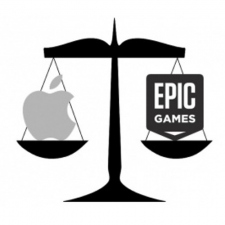The U.S. Supreme Court has rejected a new challenge from Apple, which had hoped to overturn a previous ruling that required extensive modifications to their App Store policy. This decision effectively opens the walled garden of their App Store to companies seeking direct access to their users and fans.
At the same session, the justices also denied an appeal from Epic – the maker of Fortnite and a longstanding Apple critic – while concluding that Apple’s App Store policies were illegal. Despite this, the Court’s ruling indicates that Apple did not infringe on federal antitrust laws, leaving the issue of forcing Apple to allow alternative app stores unresolved.
The 9th U.S. Circuit Court of Appeals based in San Francisco upheld much of the earlier decision, finding that Epic had “failed to prove the existence of substantially less restrictive alternatives” to Apple’s system.
So, is this a victory for both sides? Not quite.
While Epic’s attempt to portray Apple’s actions as unlawful and enable the creation of new app stores may have been unsuccessful, the requirement for Apple to allow apps within their store to offer transaction options from the web remains in place. This effectively cuts them out of the 30% tax they have earned since the App Store’s introduction in 2008.
It’s a partial victory for Epic, although not the catastrophic outcome they may have hoped for.
And the fallout has already begun. With the potential end of Apple’s App Store in-app purchase revenue stream, Apple’s stock fell more than 2% in early trading on Tuesday.
Tim Sweeney Takes the Stage
Unsurprisingly, Epic CEO Tim Sweeney appeared eager to claim victory and make it known. “Now the District Court’s injunction against Apple’s anti-steering rule is in effect, and developers can include in their apps ‘buttons, external links, or other calls to action that direct customers to purchasing mechanisms, in addition to IAP,'” he wrote on X (formerly Twitter).
“As of today, developers can begin exercising their court-established right to inform US customers about better prices on the web. These awful Apple-mandated confusion screens are over and done forever,” he continued.
However…
“The Supreme Court denied both sides’ appeals of the Epic v. Apple antitrust case. The court battle to open iOS to competing stores and payments is lost in the United States. A sad outcome for all developers.”
But!…
“The fight goes on. Regulators are taking action and policymakers around the world are passing new laws to end Apple’s illegal and anticompetitive app store practices. The European Union’s Digital Markets Act goes into effect March 7.”
Unsurprisingly, Apple has remained silent thus far. Yet, the ensuing repercussions and the inevitable loss of revenue will certainly be a grave concern for the tech giant, even though Epic’s solo mission to completely dismantle their Store has fallen short.


